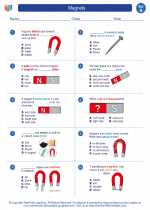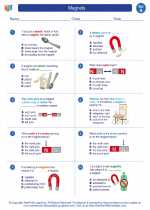Expression
An expression in mathematics is a combination of numbers, symbols, and operators (such as +, -, *, /) that represents a value. Expressions can be simple, like 2 + 3, or more complex, involving multiple operations and variables.
Types of Expressions
There are different types of expressions in mathematics, including:
- Numerical Expressions: These are expressions that consist of numbers and operations, such as 5 + 8 * 3.
- Variable Expressions: These expressions include variables, such as 3x + 7, where x is a variable.
- Algebraic Expressions: These are combinations of variables, numbers, and operations, such as 2x^2 + 5x - 3.
Evaluating Expressions
To evaluate an expression means to find its value. This involves substituting the given values for the variables and performing the operations according to the rules of arithmetic.
Study Guide:
Here are some key points to remember about expressions:
- Understand the difference between numerical, variable, and algebraic expressions.
- Practice evaluating expressions by substituting values for the variables and simplifying the operations.
- Learn the order of operations (PEMDAS - Parentheses, Exponents, Multiplication and Division, Addition and Subtraction) to correctly evaluate complex expressions.
- Practice translating word problems into algebraic expressions.
- Work on simplifying and combining like terms in algebraic expressions.
Understanding expressions is fundamental to many areas of mathematics, so it's important to practice and master this concept.
.◂Science Worksheets and Study Guides First Grade. Magnets
Study Guide Magnets
Magnets  Worksheet/Answer key
Worksheet/Answer key Magnets
Magnets  Worksheet/Answer key
Worksheet/Answer key Magnets
Magnets  Worksheet/Answer key
Worksheet/Answer key Magnets
Magnets  Vocabulary/Answer key
Vocabulary/Answer key Magnets
Magnets 

 Worksheet/Answer key
Worksheet/Answer key
 Worksheet/Answer key
Worksheet/Answer key
 Worksheet/Answer key
Worksheet/Answer key
 Vocabulary/Answer key
Vocabulary/Answer key

The resources above cover the following skills:
PHYSICAL SCIENCE (NGSS)
Waves and their Applications in Technologies for Information Transfer
Students who demonstrate understanding can:
Plan and conduct investigations to provide evidence that vibrating materials can make sound and that sound can make materials vibrate.
Use tools and materials to design and build a device that uses light or sound to solve the problem of communicating over a distance.